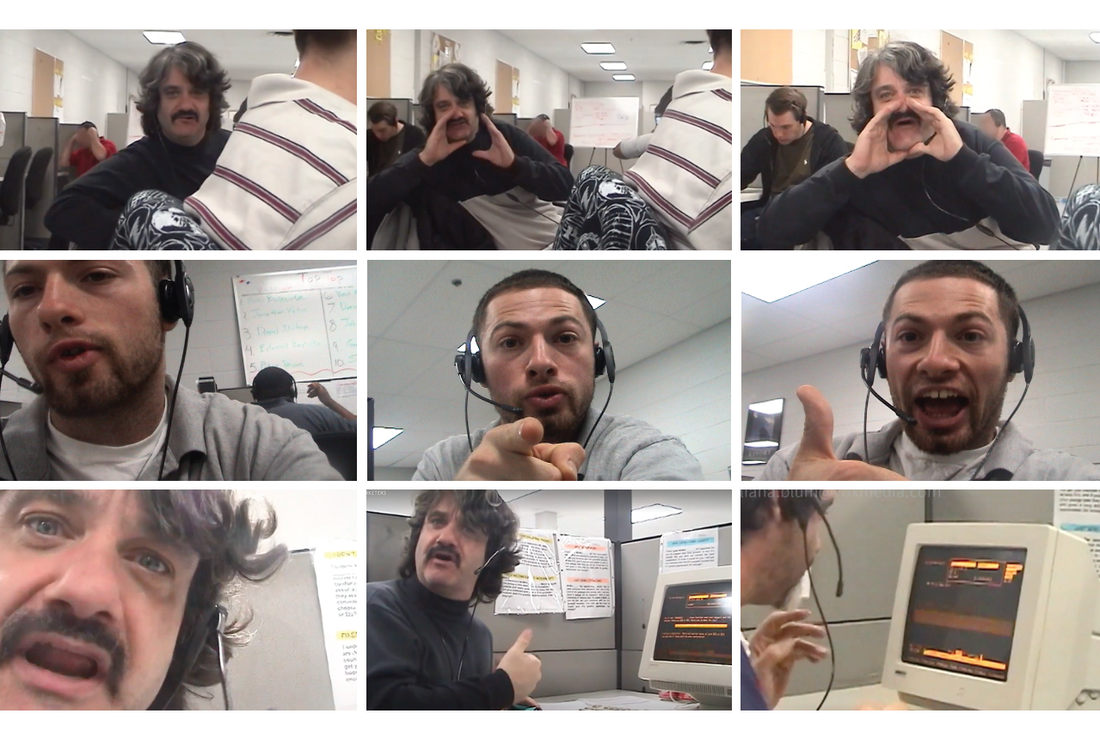Telemarketersis on HBO and Max starting August 13.
Save this article to read it later.
Find this story in your accountsSaved for Latersection.

All of his colleagues at the Civic Development Group agreed that Patrick J. Pespas was a telemarketing legend.
When he walked in, the manager asked how smart he was.
He goes, I like stupid people, Pespas recalled.
Pespas isnt stupid, but he still did great.
What was his secret?
High energy, loud voice, personable thats it.
Besides the open drug use, there were wrestling matches, tattoo sessions, sex work, puppy sales.
The only job requirement, Pespas used to joke, was being able to pronounce benevolent.
Some of the organizations they fundraised for were real, others bogus.
What they had in common was that CDG was taking up to 90 percent of the donations it solicited.
But CDGs downfall didnt stop the grift soon, Lipman-Stern and Pespas realized it went far beyond one company.
Pat was like, Yo, I worked on that campaign, Lipman-Stern recalled.
Pespas left his friend a voice-mail on his flip phone: We cant fuck around anymore.
We gotta take em down from the inside.
(Managers later invited him back.)
But in Pespas, he didnt just retain access to the company he had a star.
Theyre keeping tabs on you, America!
hed say, looking straight at his imagined audience.
Pat never puts on airs, Lipman-Stern said.
Hes a real person with a really pure heart.
After CDG shut down, the pair continued their research and made a discovery.
Rather than being the victims of the scam, these groups appeared to be active participants.
The rabbit hole goes much deeper than that, Lipman-Stern said.
They hired a film crew off Craigslist and started interviewing charity experts and people who had been scammed.
Being Michael Moore was harder than it looked.
They were two unemployed telemarketers with zero connections.
The interviews were faltering and awkward, as if they werent sure what they were trying to accomplish.
Some of the footage became Lipman-Sterns undergrad-thesis project at Temple University, but the investigation fizzled out.
Pespas got into recovery, went back to school, and cared for his wife as she battled cancer.
(Watching the footage of himself at CDG makes me cringe, he said.
I dont act like that anymore.
Im an adult.)
Bhala Lough took it to an Airbnb near the Mexican border.
I was in the desert for a week.
Smoking copious amounts of weed, watching this footage all day and all night, he said.
It was a hard drive of hundreds of hours of random stuff, none of it labeled.
It was a fucking mess, but the footage was gold.
A lot of people think that the calls are annoying so theyre the victim, Pespas said.
You know who else is the victim?
The police officers, the firemen, the veterans, the cancer patients.
They got ripped off too.
Byrnes police union raised huge sums off stories like his, but he didnt see a dime.
At CDG, they didnt tell you that, Pespas said.
The series doesnt end with catharsis.
We never wanted to demonize the callers, said Lipman-Stern.
A lot of people felt like they were at the bottom of society.
But because of that, everyone gave each other respect.
After putting his findings out there, Lipman-Stern is content that hes done all he can.
But Pespas has a larger goal.
One of our buddies is a manager right now, Lipman-Stern said.
And he texted me about the series, like, I cant believe you fucking pulled it off.
You guys are geniuses.
Thank you for subscribing and supporting our journalism.